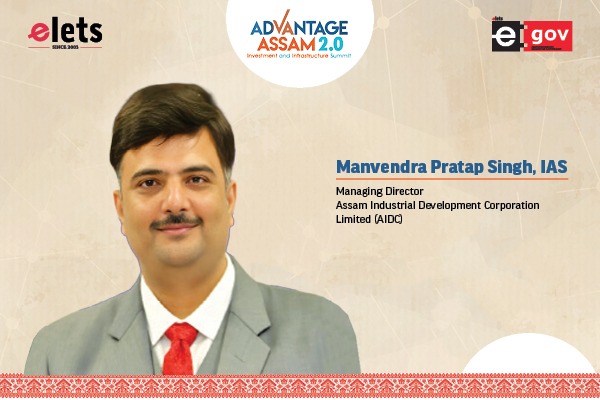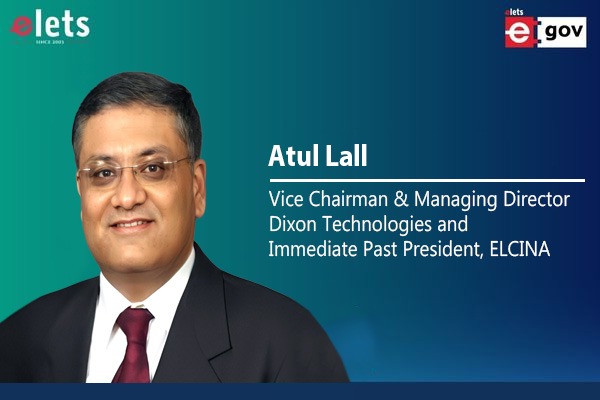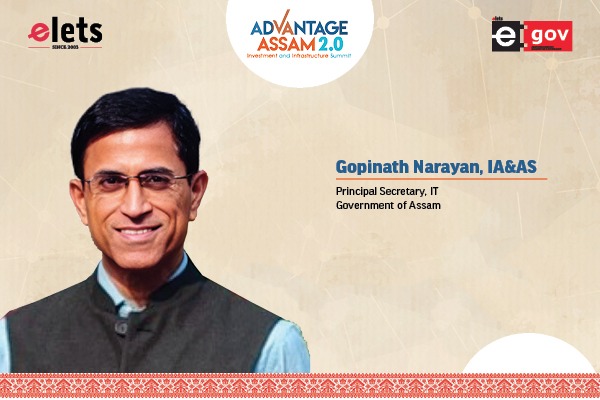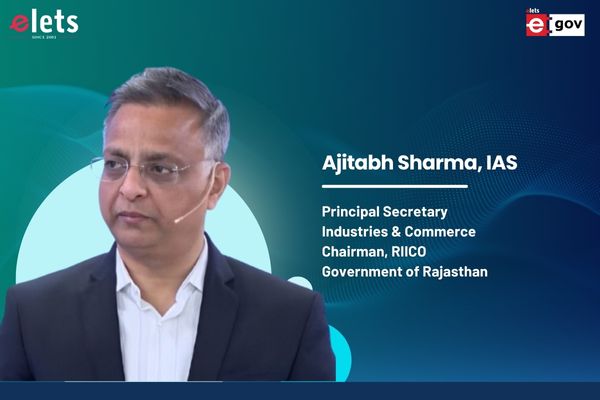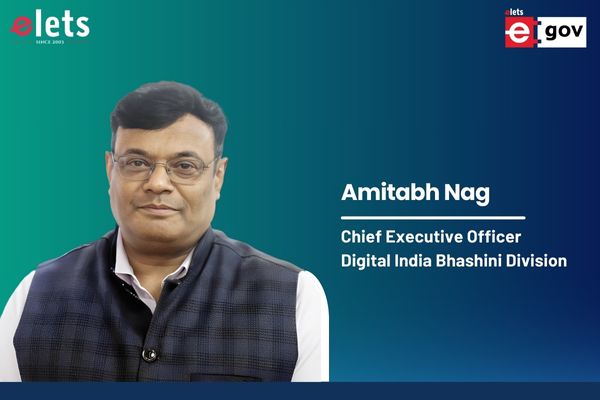
The Thiruvananthapuram Division of Indian Railways is making significant strides in
infrastructure development, technological integration, and service enhancement. With a strong
leadership foundation, the division has undertaken key projects such as station redevelopment,
railway overbridge construction, and the introduction of Vande Bharat Express services. Efforts
to modernize railway operations through digital transformation and MEMU train conversions
are further improving efficiency and passenger convenience, shared Manish Thaplyal, DRM
Southern Railways, Trivandrum, in an exclusive conversation with Nisha Samant from Elets News Network (ENN). As the division moves forward, its focus remains on innovation, capacity
expansion, and providing a seamless travel experience for commuters.
Could you share your journey within the Indian Railways, highlighting key roles and experiences that have shaped your approach to leadership?
My journey with the Indian Railways has been both dynamic and deeply fulfilling. Since joining the Indian Railway Services of Mechanical Engineering (IRSME) through the UPSC in 1992, I have had the privilege of working across various crucial roles that have shaped my leadership style.

Serving as DRM of two crucial and vibrant divisions has been quite a learning experience. Both divisions have their specific challenges and require somewhat different approaches. What remains common is that infrastructure planning and execution are the solutions to many long-term issues. Collaborative working has to be given prominence with clearly defined roles of each vertical. I have emphasized capacity creation through doubling, speed enhancement, automatic block signaling and station redevelopment.
As the Executive Director (Wagon) at the Research Designs and Standards Organisation (RDSO), I was at the forefront of wagon design and innovation, ensuring that Indian Railways adapted to modern freight needs with efficiency and safety. New designs of wagons were introduced with higher axle loads, better suspension and higher speed potential along with commodity-specific designs. This role gave me a deep appreciation for research-driven decision-making and the importance of future-ready solutions.

As Chief Mechanical Engineer (IR) in Northern Railway, I was responsible for ensuring the efficient operation and maintenance of the first two Vande Bharat trains in the country. Handling the new technology asset with the extensive attention of all concerned, including media and passengers, was a cherished achievement. At the other end of the technology spectrum, in chronological terms, I was also responsible for maintaining the steam locomotives at Rewari. The running of DEMU trains, with heating arrangements, in Jammu and Kashmir was also a novel experience. This role demanded strategic thinking, collaborative skills, and hands-on problem-solving.
My tenure as Group General Manager at Container Corporation of India Limited (CONCOR) further broadened my perspective of integrating railway logistics with the larger supply chain network. Here, I witnessed firsthand the synergy between rail freight and multimodal transport, which is critical for India’s economic growth. Throughout my career, my leadership approach has been shaped by three key principles: innovation, teamwork, and customer delight. Every role has reinforced the importance of integrating technological advancements while ensuring that the benefits reach the people who rely on our services daily.
The Thiruvananthapuram Division has undertaken several infrastructure projects, including constructing railway overbridges in Parassala. Could you provide an update on these projects and their anticipated impact on local communities?
Infrastructure development is a cornerstone of the Thiruvananthapuram Division, which prides itself on being a passenger-oriented division. One of our notable achievements has been the speed upgrade of the Thiruvananthapuram – Ernakulam corridor via Alappuzha and Kottayam and the Thiruvananthapuram – Kanyakumari corridor. Additionally, the new double line between Tirunelveli and Nagercoil Junction and the doubling between Nagercoil and Kanniyakumari were also completed recently.
The construction of critical railway overbridges (ROBs), including the one at Parassala, is a vital step toward enhancing both safety and connectivity. These ROBs are designed to eliminate level crossings, which will not only mitigate the risk of accidents but also alleviate traffic congestion, offering smoother and quicker movement for road users. The positive impact on the local community will be substantial.
Simultaneously, we are making significant headway in station redevelopment projects. The redevelopment of Thrissur, Ernakulam Town, Ernakulam Junction, Kollam Junction, Varkala Sivagiri, and Thiruvananthapuram Central into world-class stations is progressing steadily. Under the Amrit Station project, 15 stations are being upgraded to improve the passenger experience. These upgrades also align with our long-term vision of creating modern, passenger-friendly transit hubs.
Our commitment remains unwavering in ensuring that these projects are executed with minimal disruption to commuters. By eliminating or merging level crossings and improving station infrastructure, we are trying to contribute to improving the daily lives of our passengers and local communities.
With the introduction and extension of Vande Bharat Express services in Kerala, how is the division managing increased passenger demand and expectations?
The introduction and extension of Vande Bharat Express services in Kerala have been met with an overwhelmingly positive response, demonstrating the growing demand for faster and more comfortable rail travel.
We are closely monitoring passenger traffic trends and making necessary changes to schedules and rakes to optimize capacity. Recently, the Vande Bharat rake has been augmented to a 2020-car rake. Similar action is taken on other trains also by augmenting trains during festive seasons and increased demand.
We have run numerous campaigns on our digital booking platforms to ensure smooth ticketing experiences, reducing last-minute rushes and long queues.
From improved onboard catering to seamless connectivity at stations, every effort is being made to ensure a pleasant experience for travelers.
Maintenance and operational efficiency are being prioritized to ensure that Vande Bharat services run smoothly and punctually.
Vande Bharat Express is not just a train—it represents a new era of rail travel in Kerala, and we are committed to upholding the high standards associated with it.
How is the Thiruvananthapuram Division integrating technology to improve operational efficiency and passenger services in the digital transformation era?
Technology is at the heart of the Thiruvananthapuram Division’s modernization efforts, and we are actively leveraging digital advancements to enhance both operational efficiency and passenger experience.
Through remote monitoring systems, we can detect faults in rolling stock and infrastructure before they become major issues, ensuring fewer breakdowns and service disruptions.
Real-Time Passenger Information Systems: Integration of GPS-based locomotive monitoring has upgraded digital displays and mobile app integrations to provide real-time train tracking, platform updates, and other essential information.
E-ticketing and QR-based entry Systems are being expanded to reduce congestion at ticket counters and improve station entry processes.
We are progressively transforming major railway stations in the division into “smart stations” with better surveillance, systematic and mechanised cleaning systems, and improved accessibility features.
By embracing digital transformation, we aim to create a faster, safer, and more passenger-friendly railway network.
The conversion of passenger trains to Mainline Electric Multiple Units (MEMU) has been expedited. What advantages do MEMU trains offer over traditional services, and how will this transition affect daily commuters?
The shift to MEMU trains is a game-changer for regional rail transport in Kerala. Unlike traditional passenger trains, MEMU services are designed to offer higher passenger carrying capacity and faster acceleration. i.e. MEMU trains can start and stop quickly, reducing travel time and enabling more frequent services.
Greater Passenger Capacity: MEMU coaches are designed to accommodate more passengers, easing congestion during peak hours. The design of coaches is specifically to cater to commuters.
Improved Punctuality: With better speed control and braking systems, MEMU trains help maintain tighter schedules, ensuring fewer delays.
For daily commuters, this transition means more reliable, faster, and eco-friendly travel options, making regional connectivity smoother and more efficient.
The bottlenecks to create an enhanced capacity MEMU shed at Kollam have been removed. Work is in progress to handle 16 car rakes at Kollam. The capacity is being created to maintain a greater number of rakes.
Also Read: Jaipur Metro Phase-II redefining Urban Transportation
Looking ahead, what are the primary objectives for the Thiruvananthapuram Division in terms of infrastructure development, technological integration, and service enhancement?
As we move forward, the Thiruvananthapuram Division is focused on three core objectives:
1. Infrastructure Development: Expediting the completion of station redevelopment projects, Electronic Interlocking of Stations, completing the construction of Thiruvananthapuram – Nagercoil Town and Ernakulam to Turavur doubling works and also construction of railway overbridges and underpasses to eliminate level crossings. Enhancing station facilities with modern waiting areas, escalators, and expanded platforms. Strengthening railway tracks and increasing line capacity for smoother train operations.
2. Technological Integration: Use of technologies for early detection of faults for predictive maintenance. Both onboard and offboard equipment are being used for comprehensive outcomes. Expanding cashless and contactless ticketing solutions for a seamless passenger experience. Similarly, facilities have been developed for real-time monitoring and booking of freight consignments. To improve energy efficiency across rail operations. Introducing eco-friendly initiatives, such as solar-powered station lighting and waste management systems.
3. Service Enhancement: The focus is on improving the overall experience for the user. The infrastructure is being improved. The on-board services, including catering, are being made more accessible and with more options. The availability of information has been made real-time through various mediums, including mobile apps. Newer services of Vande Bharat have been introduced along with MEMU services for faster intra-state connectivity. Improving preemptive grievance redressal mechanisms to ensure prompt resolution of passenger concerns. The Thiruvananthapuram Division remains committed to creating a future-ready railway network that prioritizes efficiency, passenger comfort, and sustainable growth.
Be a part of Elets Collaborative Initiatives. Join Us for Upcoming Events and explore business opportunities. Like us on Facebook , connect with us on LinkedIn and follow us on Twitter, Instagram.
"Exciting news! Elets technomedia is now on WhatsApp Channels Subscribe today by clicking the link and stay updated with the latest insights!" Click here!




